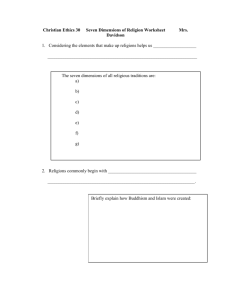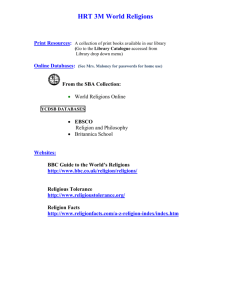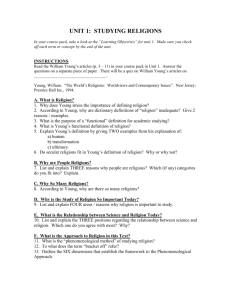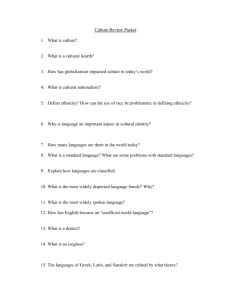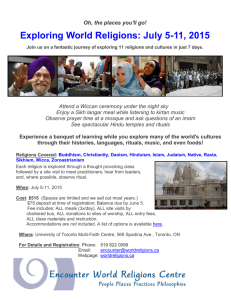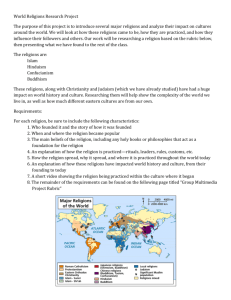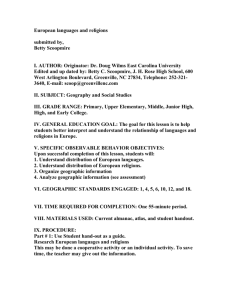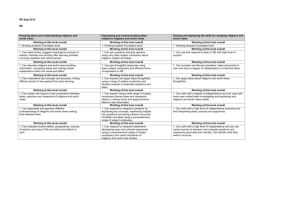Final Exam, Religion, Ethics, and Nature
advertisement
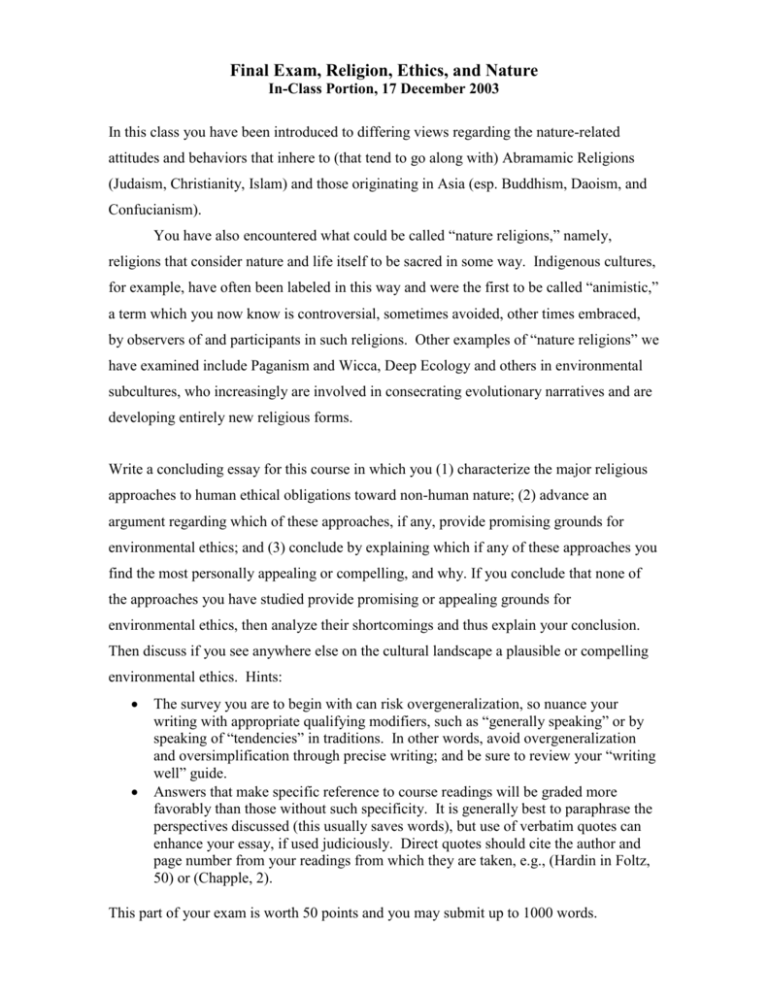
Final Exam, Religion, Ethics, and Nature In-Class Portion, 17 December 2003 In this class you have been introduced to differing views regarding the nature-related attitudes and behaviors that inhere to (that tend to go along with) Abramamic Religions (Judaism, Christianity, Islam) and those originating in Asia (esp. Buddhism, Daoism, and Confucianism). You have also encountered what could be called “nature religions,” namely, religions that consider nature and life itself to be sacred in some way. Indigenous cultures, for example, have often been labeled in this way and were the first to be called “animistic,” a term which you now know is controversial, sometimes avoided, other times embraced, by observers of and participants in such religions. Other examples of “nature religions” we have examined include Paganism and Wicca, Deep Ecology and others in environmental subcultures, who increasingly are involved in consecrating evolutionary narratives and are developing entirely new religious forms. Write a concluding essay for this course in which you (1) characterize the major religious approaches to human ethical obligations toward non-human nature; (2) advance an argument regarding which of these approaches, if any, provide promising grounds for environmental ethics; and (3) conclude by explaining which if any of these approaches you find the most personally appealing or compelling, and why. If you conclude that none of the approaches you have studied provide promising or appealing grounds for environmental ethics, then analyze their shortcomings and thus explain your conclusion. Then discuss if you see anywhere else on the cultural landscape a plausible or compelling environmental ethics. Hints: The survey you are to begin with can risk overgeneralization, so nuance your writing with appropriate qualifying modifiers, such as “generally speaking” or by speaking of “tendencies” in traditions. In other words, avoid overgeneralization and oversimplification through precise writing; and be sure to review your “writing well” guide. Answers that make specific reference to course readings will be graded more favorably than those without such specificity. It is generally best to paraphrase the perspectives discussed (this usually saves words), but use of verbatim quotes can enhance your essay, if used judiciously. Direct quotes should cite the author and page number from your readings from which they are taken, e.g., (Hardin in Foltz, 50) or (Chapple, 2). This part of your exam is worth 50 points and you may submit up to 1000 words.
